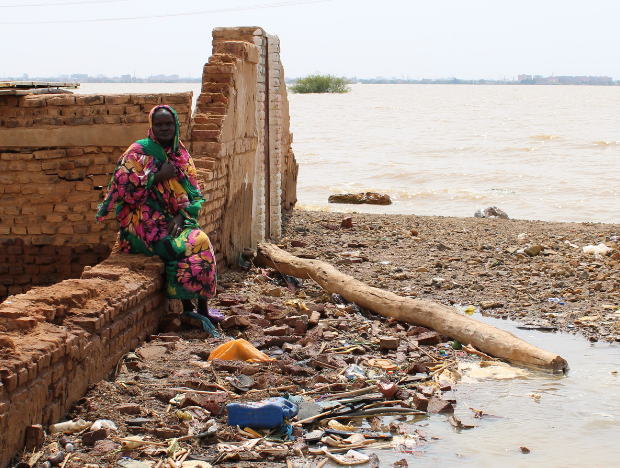How UNHCR is fighting food insecurity in the wake of a global hunger crisis
The world is currently facing an unprecedented hunger crisis. According to the World Food Programme, 345 million people face an acute risk for food insecurity across 82 countries. This number has more than doubled in the last two years, bringing many countries to the brink of famine.
There are several factors contributing to the steep rise in food insecurity over the last two years. The beginning of COVID-19 interrupted food supply chains and made it difficult to provide humanitarian aid to those in need; climate change is affecting agriculture and livestock supply around the world; inequality and poverty have put affordable food beyond the reach of millions of families; and the war in Ukraine has had a ripple effect on food supplies and resources. Ukraine is one of the world’s major breadbaskets — a part of the world primarily responsible for providing wheat and other grain — and conflict in the region and sanctions have driven up the prices of fuel and staple food items.
The crisis in Ukraine has also significantly increased the number of displaced people, pushing the number over 100 million people globally in 2022. With so many people displaced and in urgent need of humanitarian assistance, supply chains and outlets for providing urgent food and clean water are strained.
Without immediate action to mitigate the risks of food insecurity, many countries will reach the point of famine. Although no countries currently meet the requirements to be considered in a state of famine, countries like Yemen, South Sudan and Ethiopia are on the brink. Globally, 50 million people face an immediate risk of starvation.
With food prices reaching an all-time high in 2022 and several countries on the brink of famine, what can be done to alleviate these strains? Here are three ways the world can come together to stop famine and food insecurity, and what UNHCR, the UN Refugee Agency, is doing to support these efforts.
Delivering Humanitarian Aid & Cash Assistance
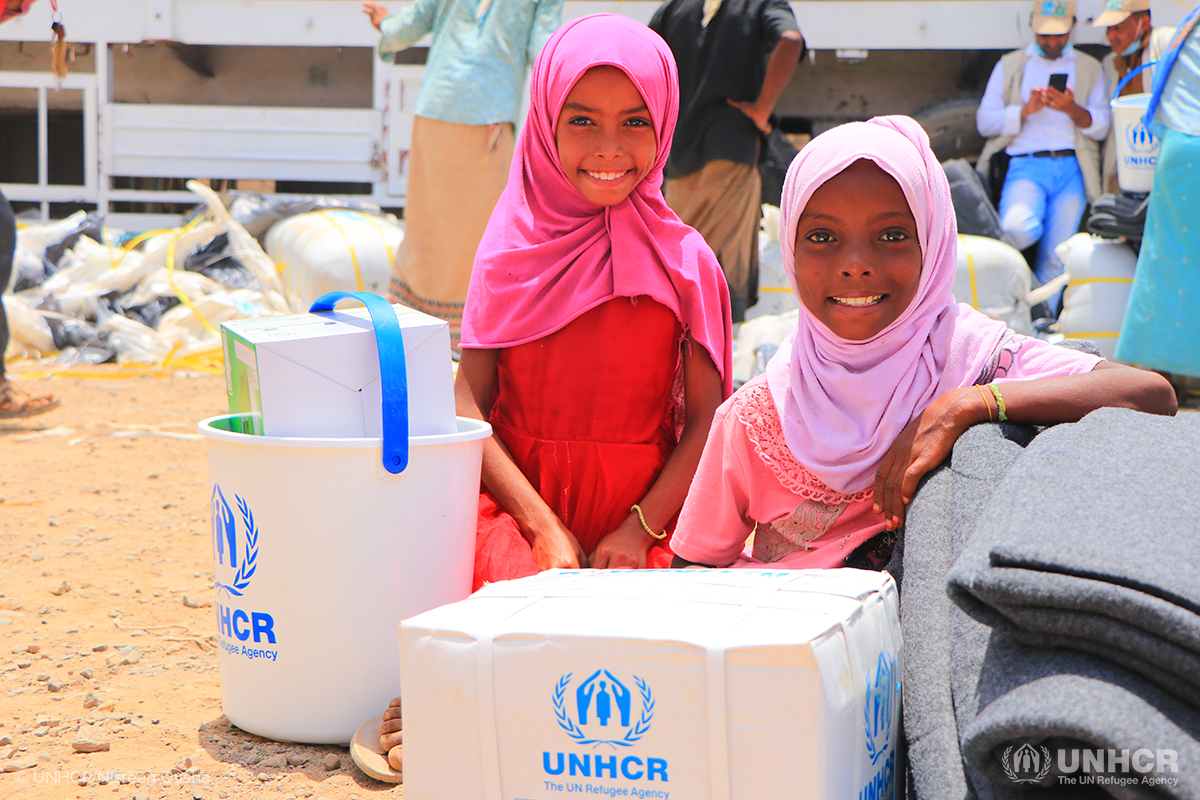
When crisis strikes and millions of people are forcibly displaced from their homes, receiving essential humanitarian aid is critical to ensuring the safety and health of those forced to flee. During large-scale humanitarian crises, like those in Yemen, this humanitarian aid is often the only lifeline for those in need.
Yemen is currently facing one of the world’s worst hunger crises, with nearly 50,000 people living in famine-like conditions and 5 million more facing significant risk of going hungry in 2022. The country has also been critically affected by the war in Ukraine, with the cost of staple foods rising beyond the means of many Yemeni families.
UNHCR is on the ground in Yemen providing essential supplies and food, including high-calorie and nutrient dense food sources, but conflict in and around the region makes it difficult for UNHCR to access the most vulnerable. Ensuring pathways for humanitarian aid remain safe and open is critical for meeting the needs of food insecurity. Humanitarian aid is one of the only ways many Yemenis can ensure their families stay healthy and avoid hunger.
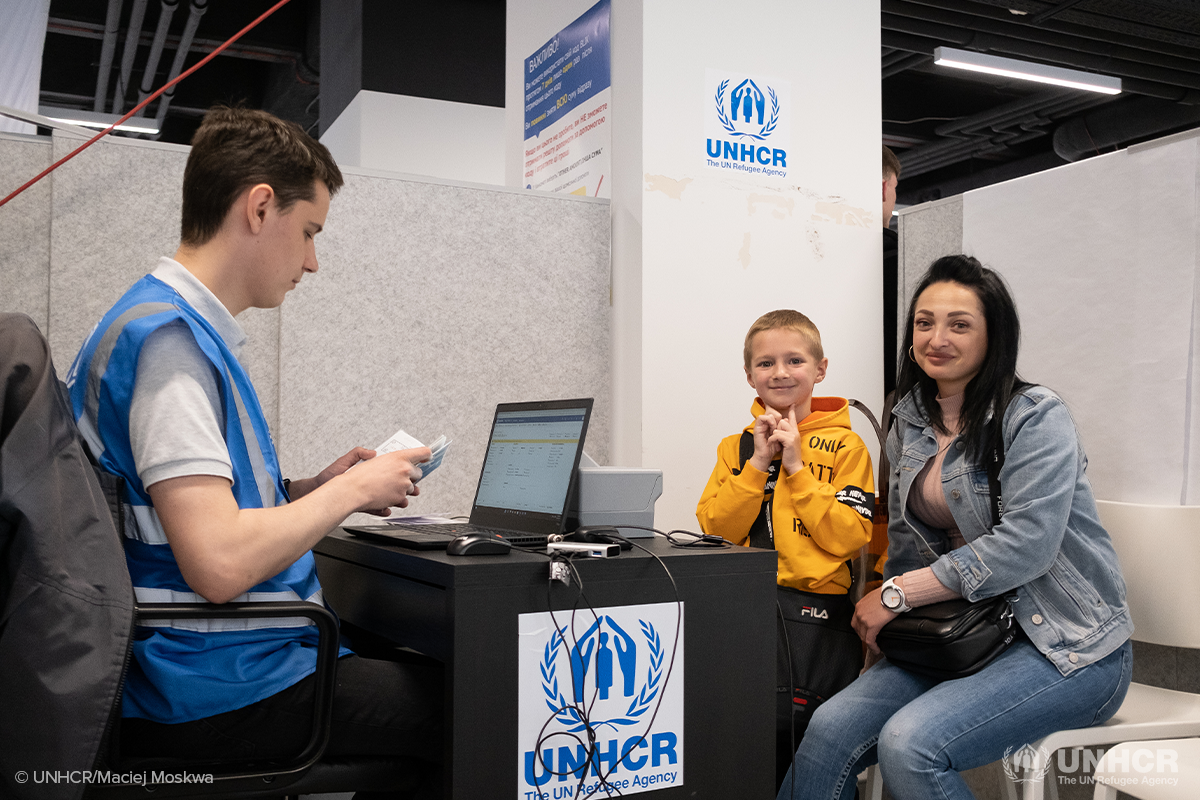
For people who have been forcibly displaced, another key way to prevent food insecurity is to offer cash assistance. Cash assistance is a program that provides displaced people with cash stipends that allow them return to a sense of normalcy. With cash assistance, they can buy food and other essentials on their own, which also gives them the chance to accommodate any dietary restrictions.
Yulia and her son, Vlad, were forced to flee Ukraine in March 2022. In Poland, they were able to receive cash assistance from UNHCR, which has allowed them to stay safe and healthy on their journey to safety.
“With the cash assistance we will buy some tasty food, as my son is not keen to eat here,” says Yulia. “His favorite food is fried potatoes.”
Around the world, UNHCR is on the ground providing cash assistance, critical humanitarian aid, including high-nutrient and calorie dense foods that help displaced people stay healthy and avoid the effects of acute hunger.
Promoting Livelihood Opportunities
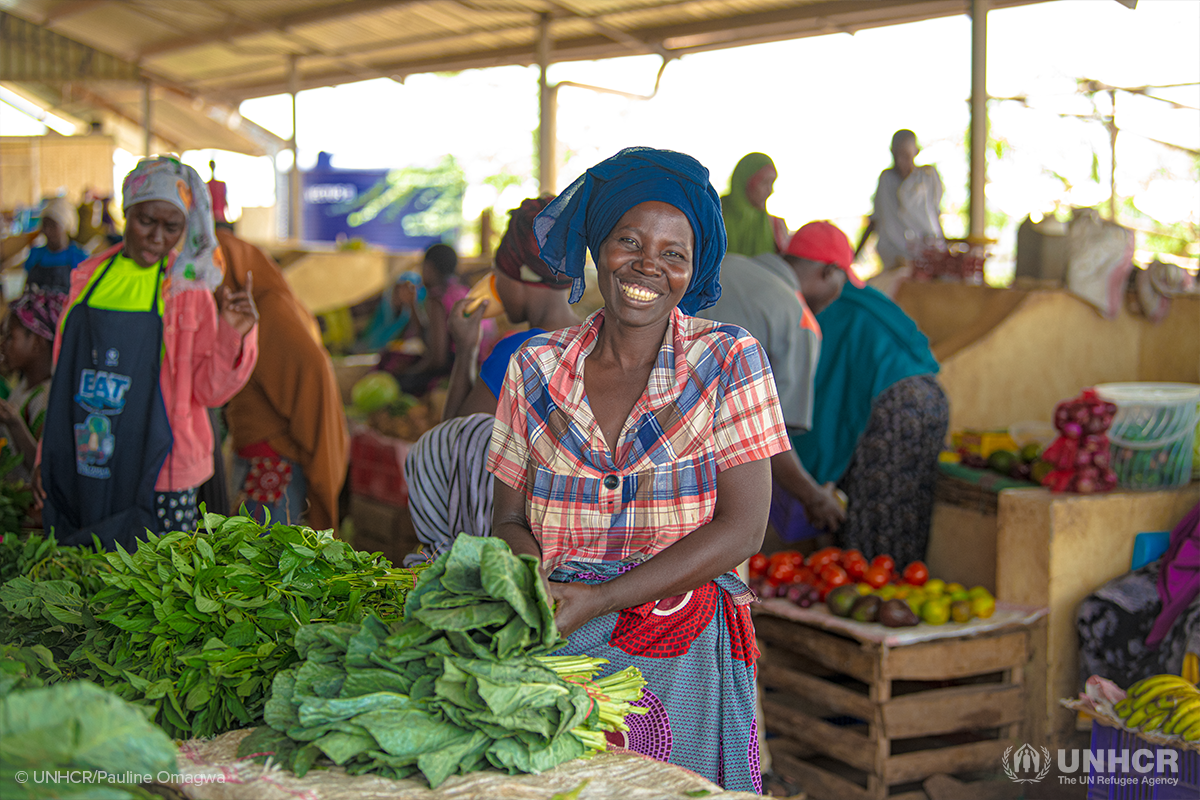
When global supply chains and pathways for humanitarian aid are threatened, ensuring food security comes down to self-reliance from refugee and host communities. Serafina owns a vegetable stand in the market in the Kalobeyei Refugee Settlement in Kenya. Here, she’s able to sell the vegetables she grows to feed her community, and she generates an income that she can use to buy her own food and supplies.
UNHCR works with partners in refugee camps around the world to provide entrepreneurial opportunities to farmers. By supporting the farming skills and livelihoods of refugees, they have the opportunity to help ensure food security for other refugees as well as their host communities. UNHCR supports these entrepreneurs by providing grants for farms and market stall rentals, seeds, plots of land for farming, as well as other supplies to help farmers get their operations off the ground.
Ensuring that refugee communities can be self-reliant reduces the dependence on humanitarian aid and imported goods, which helps communities avoid the risks of food insecurity when conflict and displacement interrupt global supply chains.
Fighting Global Climate Change
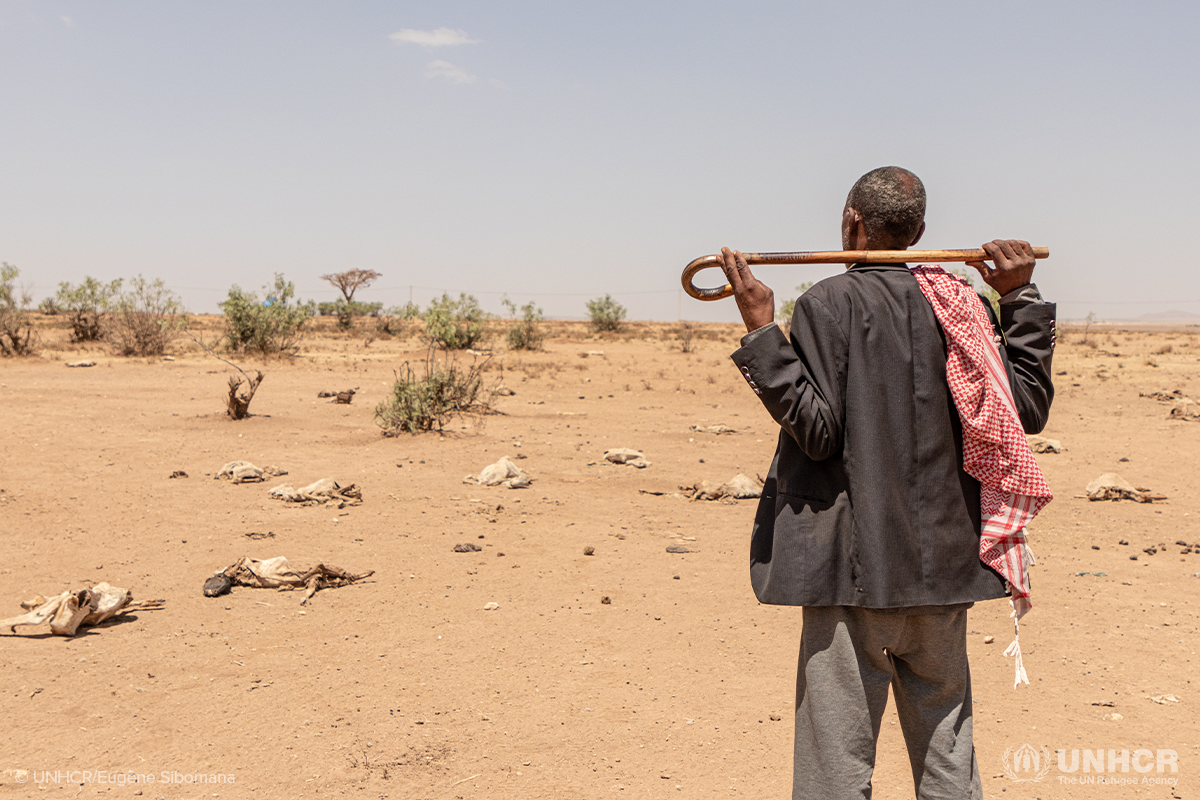
Self-reliance and ensuring that displaced communities have adequate access to food sources is essential to fighting food insecurity long-term, but that goal is impossible without addressing the effects of the climate crisis on these communities.
The Horn of Africa, including countries like Ethiopia and Somalia, is currently facing one of the worst droughts in history. Water sources are drying up, leaving displaced people and host communities alike without access to clean drinking water or water for crops and livestock. Thousands of families have lost their farms, and are being forcibly displaced again in order to survive.
Compounded with the rise in food prices and protection concerns around delivering aid safely to people throughout the region, individuals in Ethiopia and Somalia are rapidly approaching a dire food security crisis.
Preventing humanitarian crises like these begins with addressing the climate crisis. Without addressing climate change, communities like those in the Horn of Africa will continue to lose their homes and livelihoods.
In addition to working on ensuring that displaced individuals in Ethiopia and Somalia have access to critical humanitarian aid, UNHCR is also working with governments and partners around the world to advocate for climate action and reduce its own carbon footprint in operations.
How you can help…
Battling food insecurity amid growing displacement and a scarcity of resources is an ongoing challenge , but you can help displaced people access nutrient-rich food by becoming USA for UNHCR’s newest monthly donor. Your ongoing support will ensure that displaced people can receive lifesaving supplies and build livelihoods that protect food resources for their communities and the world.

